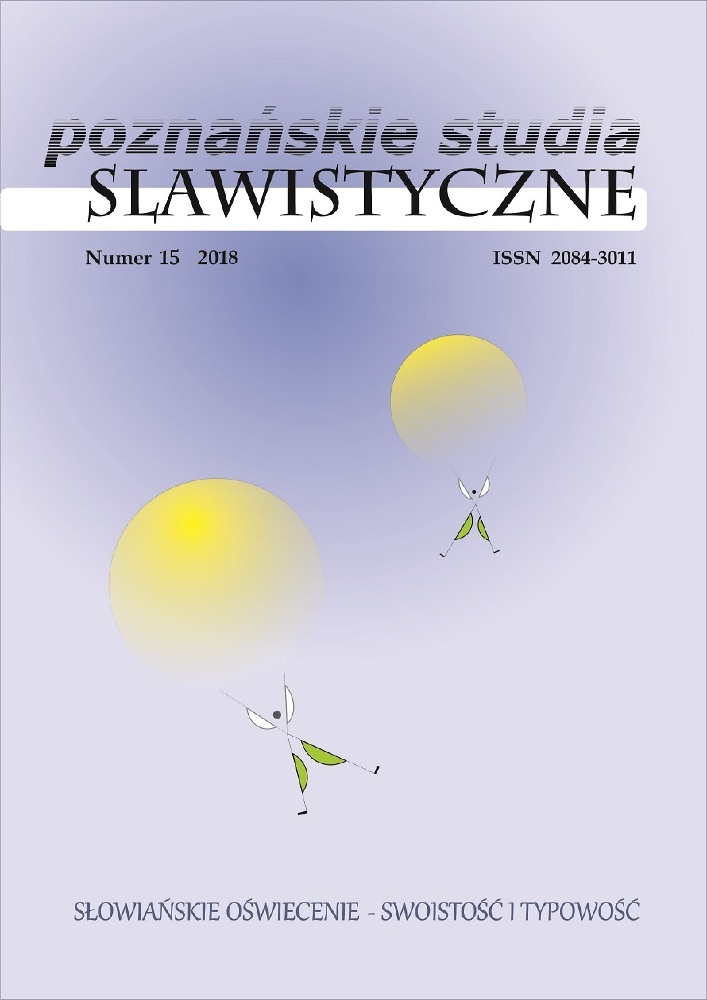Abstrakt
Belief legends, especially those regarding fear and its realization, transformation and embodiment, are important narrative substrate. Forms of belief legends and/or their segments are often, in many ways and functions, intertextually inscribed in Croatian novelistic production. This paper shall analyse the way in which the motifs and topics related to the belief legends, as well as their development: defining and unmasking fear, are employed in the novels Živi i mrtvi (The Living and the Dead) by Josip Mlakić and Črna mati zemla (Black Mother Earth) by Kristian Novak. In the novel Živi i mrtvi, the elements of the belief legends poetically recreate a strong sense of horror of war, here represented through the growing fear felt by a small isolated group made up of a couple of soldiers. A different type of terror, a personal trauma that leaves the under-aged protagonist of Črna mati zemla completely isolated from the world and his loved ones, is poetically recreated especially through some of the elements of the belief legends.
Bibliografia
Bagić, K. (2016). Uvod u suvremenu hrvatsku književnost. Zagreb: Školska knjiga.
Beljan Kovačić, I. (2016). O pričama i čitanju. Književnokritičke bilješke. Zagreb–Sarajevo: Synopsis.
Coha, S. (2018). Od predaje do novele ili o (domo)ljubnoj (pri)povijesti Povodkinje pod gradom Ozlom Dragojle Jarnević. U: Tragovi tradicije, znakovi kulture. Zbornik u čast Stipi Botici. Ur. E. Rudan, D. Nikolić, J. Tomašić. Zagreb: Hrvatska sveučilišna naklada, Hrvatsko filološko društvo, Matica hrvatska, str. 139–154.
Čović, M. (2015). Živi i mrtvi, Josip Mlakić. citajme, 5.11.2015. http://citajme.com/zivi-i-mrtvi. 30.08.2018.
Griffiths, P. (1999). Modularity and the Psihoevolutionary Theory of Emotion. U: Mind and Cognition. Ur. W.G. Lycan. Oxford: Blackwell Publisher, str. 516−530.
Juvan, M. (2011). Nauka o književnosti u rekonstrukciji. Uvod u savremene studije književnosti. Beograd: Službeni glasnik.
Kazaz, E. (2003). Roman napete fabule. "Sarajevske sveske" 3, str. 421–423.
Keen, S. (2011). Introduction: Narrative and the Emotions. "Poetics Today" nr 32, str. 1–53.
Košćak, N. (2008). Stil i diskursne strategije romana Kad magle stanu Josipa Mlakića. "Croatica" broj. 2, 177–195.
Marić, A. (2017). Kristian Novak "Črna mati zemla" Sindrom potisnutog sjećanja. citajknjigu, 27.04.2017, https://citajknjigu.com/kristian-novak-crna-mati-zemla-sindrom-potisnutog-sjecanja. 01.09.2018.
Matanović, J. (2003). Josip Mlakić, Živi i mrtvi. "Književna revija" broj. 3, str. 122–123.
Matanović, J. (2016). Tema: veznik i (i kao most između Andrića i Mlakića). "Croatica" broj. 60, str. 153–165.
Pogačnik, J. (2013a). Horor poslije rata, Josip Mlakić, Živi i mrtvi – VBZ, Zagreb, 2002. U: Proza poslije FAK-a. Zagreb: Profil.
Pogačnik, J. (2013b). Kristian Novak. tamni glas iz Međimurja. "Jutarnji list", 17.4.2013, https://www.jutarnji.hr/kultura/kristian-novak-tamni-glas-iz-medimurja. 12.09.2018.
Primorac, S. (2002). Uvjerljiva antiratna priča. "Večernji list", 10.12.2002. https://www.vecernji.hr/kultura/uvjerljiva-antiratna-prica-727672. 12.09.2018.
Primorac, S. (2012). Linija razdvajanja. Hrvatska proza o ratu i njegovim posljedicama 1990–2010, Zagreb: Naklada Ljevak.
Primorac, S. (2013). Potraga za izgubljenim sjećanjem. Međimurje na karti hrvatske književnosti. Kristian Novak. Črna mati zemla. "Vijenac" 512, 17.10.2013. http://www.matica.hr/vijenac/512/potraga-za-izgubljenim-sjecanjem-22418. 12.09.2018.
Rosenwein, B. (2015). Problemi i metode istraživanja povijesti emocija. "Historijski zbornik" broj. 68 (2), str. 441−458.
Rörich, L. (1984/2018). Predaja – bajka – narodno vjerovanje: kolektivni strah i njegovo svladavanje. U: Predaja: temelji žanra. Ur. Lj. Marks, E. Rudan, Zagreb: Institut za etnologiju i folklorstiku, s. 351–370.
Rudan, E. (2000) Motivi usmenih predaja u novijem čakavskom pjesništvu Istre. "Riječ", Rijeka nr 6 (2), str. 163–171.
Rudan, E. (2002). O predaji u Dugi i kazivačkoj situaciji u Mladosti. U: Kijevski književni susreti: Posvećeno Dinku Šimunoviću, Kijevo, kolovoz 2002. Zbornik radova i pjesama. Kijevo: Općinsko poglavarstvo Kijevo, str. 19–30.
Rudan, E. (2016). Vile s Učke. Žanr, kontekst, izvedba i nadnaravna bića predaja. Zagreb–Pula: Hrvatska sveučilišna naklada- Povijesni i pomorski muzej Istre.
Rudan, E. (2018). Kodiranje straha u suvremenim proznim žanrovima – prilog istraživanju emocija iz folklorističke perspektive. U: Hrvatski prilozi 16. međunarodnom slavističkom kongresu. Ured. S. Botica et. al., Zagreb: Hrvatsko filološko društvo, Hrvatski slavistički odbor, str. 139–150.
Ryznar, A. (2017) Suvremeni roman u raljama života. Studija o interdiskurzivnosti. Zagreb: Disput.
Tolić, T. (2013). Potresan i izniman roman o dječaku koji je odbio povjerovati da mu je umro otac. Najbolje knjige. Portal za knjigoljupce, 20.05.2013, http://www.najboljeknjige.com/content/knjiga.aspx?BookID=1885&tab=2. 15.09.2018.
Užarević, J. (2012). Književni minimalizam. Zagreb: Disput.
Licencja
Prawa autorskie (c) 2018 Evelina Rudan

Utwór dostępny jest na licencji Creative Commons Uznanie autorstwa – Bez utworów zależnych 4.0 Międzynarodowe.

